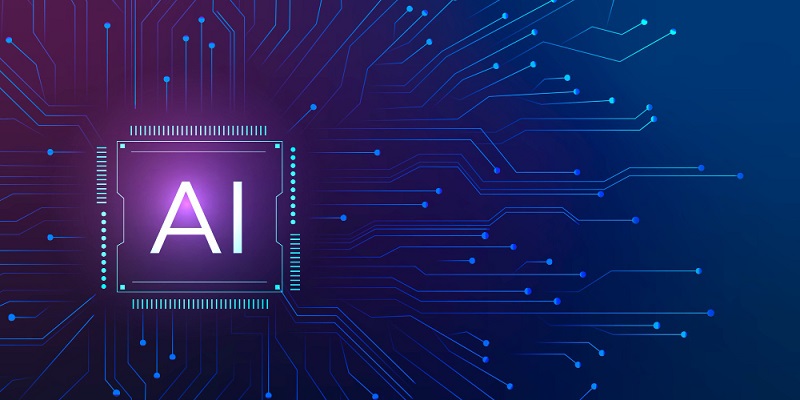Microsoft, the tech giant known for its innovative software solutions, is once again pushing the boundaries of technology with its latest set of artificial intelligence-powered solutions. With the upcoming release of Windows 11, Microsoft is incorporating AI capabilities across its products, aiming to revolutionize productivity and user experiences.
Microsoft Copilot
One of the standout features of Windows 11 is Microsoft Copilot, an AI-powered tool that seamlessly merges interfaces with language models. This groundbreaking technology will enhance popular applications like Paint, Photos, and Clipchamp. By utilizing state-of-the-art natural language processing, Copilot enables users to interact with these apps using simple conversational prompts. This is set to revolutionize the way we engage with software, making it more intuitive and user-friendly.
Advanced Search Capabilities with Bing Supported by OpenAI’s DALL-E Model 3
Microsoft’s search engine, Bing, is about to level up with the support of OpenAI’s cutting-edge language model, DALL-E 3. This integration will enable Bing to provide users with advanced search capabilities, allowing for more accurate and contextually relevant results. With DALL-E 3’s powerful image generation capabilities, Bing will excel at visual search, making it a valuable tool for users looking for images, products, or information.
Assisting Users and Enterprises with Repetitive Tasks
Recognizing the need for increased efficiency in various applications, Microsoft is introducing Microsoft 365 Copilot. This AI-powered solution aims to assist both individual users and enterprises by automating repetitive tasks in popular Microsoft Office applications, such as Word, Excel, and PowerPoint. With Copilot, users can rely on intelligent automation to streamline their workflows, freeing up time for more strategic and creative endeavors.
The revenue potential with Copilot 365 upgrade
Microsoft has positioned Copilot 365 as a premium offering, priced at $30 per user per month. While this might seem steep to some, the potential benefits and cost savings for businesses are immense. If just 2.5% of the estimated 382 million commercial users of Microsoft Office 365 opt for the Copilot 365 upgrade, Microsoft stands to generate a staggering $3.4 billion in annual revenue. This underscores the confidence Microsoft has in the value proposition of their AI-powered solutions.
Personalized answers on Bing through AI analysis of chat history
To deliver more personalized search results, Bing will leverage AI models that analyze users’ chat history. By understanding the context of previous conversations, Bing can provide tailored answers that align with users’ preferences and interests. This level of personalization takes search engines to a whole new level, making Bing a smarter and more efficient tool for information retrieval.
Refining Online Shopping Search Results on Bing through Additional User Questions
Bing is upping its game in the e-commerce space by asking users additional questions during the online shopping search process. By acquiring more specific details about users’ preferences and desires, Bing can refine search results and provide more accurate product recommendations. This feature promises to enhance the online shopping experience, saving users’ time and ensuring they find exactly what they’re looking for.
Availability of Copilot as a Free Windows 11 Update from September 26
Excitingly, Microsoft will make an early version of Copilot available as a free update for Windows 11. This move showcases Microsoft’s commitment to empowering users and embracing the potential of AI. By allowing users to experience the capabilities of Copilot at no extra cost, Microsoft encourages widespread adoption and feedback to further refine and improve the technology.
Integration of Copilot into Microsoft Edge and Microsoft 365 later this year
Microsoft has ambitious plans for Copilot beyond Windows 11. In the near future, Copilot will be integrated into other flagship products, including Microsoft Edge and Microsoft 365. This integration aims to create a seamless and connected experience across different platforms, empowering users to leverage AI capabilities wherever they work or browse the web.
AI as a Transformative Force in Technology
Microsoft sees AI as more than just a technological advancement; it is a transformative force that has the power to reshape how we relate to and benefit from technology. By infusing AI into their products and services, Microsoft is striving to elevate productivity, enhance user experiences, and unleash the full potential of human ingenuity.
With the introduction of AI-powered solutions across its product lineup, Microsoft is once again demonstrating its commitment to innovation and pushing the boundaries of what technology can achieve. From the seamless integration of language models into interfaces to personalized search experiences and intelligent automation, Microsoft’s AI-powered solutions are poised to revolutionize productivity and redefine how we interact with technology. The future is undoubtedly exciting as AI continues to unlock new possibilities, and Microsoft stands at the forefront of this transformative movement.

